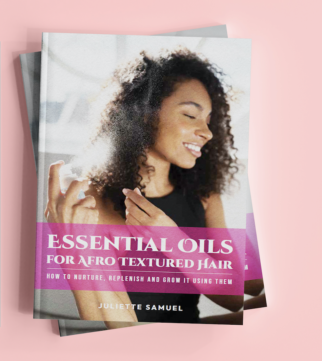Common Terms and Ingredients Used in Black Skin Care Products
When I first started my beauty business my goal and objective was to offer You, our visitors and clients, a product that contained natural and/or organic ingredients. I know what’s it’s like to use a product and have a reaction to it and not know how to bring ease to your skin.
I had to stop walking through the perfume section of department stores because I couldn’t take the sprits and sprays of the Perfume Ladies. If I wasn’t sneezing from the synthetics in the products, my skin smelled like urine when I’d try some of them. I know, phew!
So understanding the ingredients and terms used in the personal care industry became a top priority to me. So today I share with you some of those terms and definitions so that you will be equipped as you shop for your beauty products.
Her we go!
Common Terms And Helpful Definitions
Antioxidants – These are substances that counter the counter the destructive effects of free radicals in your body. These are a major cause of disease and aging.
Antioxidants protect your tissues against cellular damage by stabilizing free oxygen molecules. You’ll often see antioxidants used to prevent oxidation of fats and oils. Some of the natural antioxidants are Vitamins A, C and E, alpha lipoic acid and green tea.
Exfoliants – Typically used in scrubs but also found in mask and cleansing lotions. Exfoliants encourage your skin cells to regenerate by removing dead skin cells and making way for new cells underneath.
Examples of exfoliants would be ground nuts, meals and jojoba wax beads. They gently slough off dead skin cells, while fruit acid exfoliants dissolve the cellular glue that holds your skin cells together to reveal new, fresh cells.
Papaya is known as an enzymatic exfoliant and it digest dead skin cells and offers the mildest form of exfoliation.
Humectants – Humectants promote water retention in hair and skin care products. They attract and bind water to themselves. Some examples are vegetable glycerin, sorbitol and honey.
Now let’s take a look at Natural Ingredients Used in Black Skin Care Products
Allantoin – This is the extract from comfrey that used in cell therapy treatments, face creams and sun care preparations as a healing agent and moisturizer
Aloe Vera – Is considered one of nature’s most effective remedies for sunburn and skin irritations. It’s a superb hydrator for dry hair and skin. Whenever possible use organic Aloe.
Beeswax – Obtained from the honeycomb of the honeybee. It’s a natural thickener and emulsifier.
Beta-Carotene – Orange and red compounds were actually before Vitamin A was introduced to skin care. It occurs naturally in plants. Carrot seed oil is high in beta-carotene and vitamin E and is essential to the regeneration of your skin cells. It also stimulates the production of sebum in dry skin and scaly scalps.
Cocoa Butter – This is the solid fat extracted from the seeds of the cocoa plant. It’s a rich emollient used in lipsticks, creams and sunscreen products for its moisturizing and soothing properties.
Coconut Oil – This is a rich emollient that’s expressed from the coconut. It’s usually converted into soap but it’s great for skin and hair care.
Essential Oils – these are volatile liquids that are extracted from plant materials by steam distillation or expression. Unlike fixed oils such as sweet almond oil, essential oils evaporate at room temperature and they do not leave oily residue on your skin.
Green Tea – This is a powerful antioxidant that inhibits the formation of cancer-causing free radicals and helps in preventing skin cell damage. Green tea is reported to be 20 times stronger than Vitamin E and powdered Match green tea from Japan is considered to be the finest.
Shea Butter – This butter is obtained from the nuts of the Mangifolia tree in Central Africa. It’s also known as karite butter or African Butter. It’s a superb emollient, high in fatty acids and is ideal for skin moisturizers and hair conditioners
Sweet Almond Oil – This oil is used as an absorption base in beauty products. It’s ideal for soothing and moisturizing your skin. It’s also an excellent emollient that’s high in fatty acids.
What’s Next? …
Of course I couldn’t cover every ingredient found in products for African American Skin but here are some of the most often used.
As you browse the aisle of the convenient stores and beauty hubs, hopefully this list is the beginning of a dictionary that you will use as a reference tool. It will allow you to stay on top of what you actually put on your skin.
Sometimes you’ll find ingredients that are written in Latin. These are often the botanical names for the essential oil used in the product. It might also be a name used to cover up the fact that it’s an ingredient that might not be good for your skin or hair.
That’s It For Now!
Dedicated To Your Beauty!
Juliette Samuel
Author/Publisher/Esthetician
Nyraju Skin Care
http://www.nyrajuskincare.com




 Facebook
Facebook Twitter
Twitter Delicious
Delicious Digg
Digg Myspace
Myspace StumbleUpon
StumbleUpon Youtube
Youtube